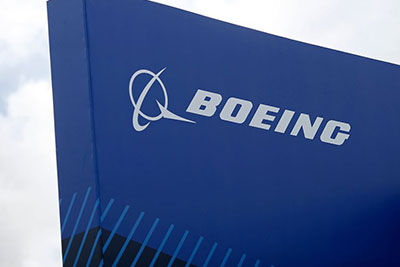Ask the Rational Investor: Should investors worry about Boeing’s 737 MAX issue?

Boeing's 737 MAX is one of the most anticipated updates to the 737, which currently has an order backlog of over 4,600 aircraft, representing 78% of Boeing’s overall commercial aircraft backlog. Over the next 5 years, it is estimated that the MAX will represent approximately 33% of Boeing's sales and almost half of Boeing earnings before interest and taxes (EBIT).
Considering the significance of the MAX upgrade, it’s no surprise that stock prices have dropped from a recent high of $440 on March 1st, to $370 (3/27/19) after the Ethiopian Airlines crash and the eerily similar Lion Air crash. The two incidents in conjunction caused the worldwide grounding of the airliner.
Few details exist about what happened or how quickly the issue at fault can be resolved. The FAA and Boeing have been working together to find a resolution, and Boeing plans on releasing a software update to their Maneuvering Characteristics Augmentation System (MCAS), which many believe caused the two incidents.
Uncertainty has left investors unsure of the total loss in profit from the grounding of planes, slowdown in delivery of new planes and potential fines.
In 2013, Boeing's 787 Dreamliner experienced a lithium-ion battery issue and the FAA grounded about 50 planes for four months, however no lives were lost. The Dreamliner continues to sell well, and over 800 are in use around the world. Some analysts have written that the grounding of the 737 Max will cost Boeing around $750 million to $1 billion per month.
Boeing's market capitalization has shrunk more than $25 billion since the event. Only time will tell if this markdown is close to what this problem will eventually cost Boeing.
Investors need to carefully weigh the risks of Boeing.
One aspect of the Boeing story investors have really begun to appreciate, outside of the 737 MAX, is their increasing market share in the maintenance market. Boeing estimates their market size over the next 10 years to be over $2.8 trillion, growing around 3.5% per year. Hopefully, Boeing can continue to grab additional market share in this category.
From a valuation perspective, Boeing is trading at 18.5x 2019 and 16x 2020's earnings consensus and about 12.5x enterprise value to profit (EV/EBITDA). These valuations appear attractive to long-term valuations, but investors should have a long-time horizon and carefully consider their position size relative to their portfolio to help manage uncertainty relating to the 737 MAX 8 issue.
Written: March 27th, 2019
Beese Fulmer Private Wealth Management was founded in 1980 and is one of Stark County’s oldest and largest investment management firms. The company serves high-net-worth individuals, families, and non-profits, and has been ranked as one of the largest money managers in Northeast Ohio.
